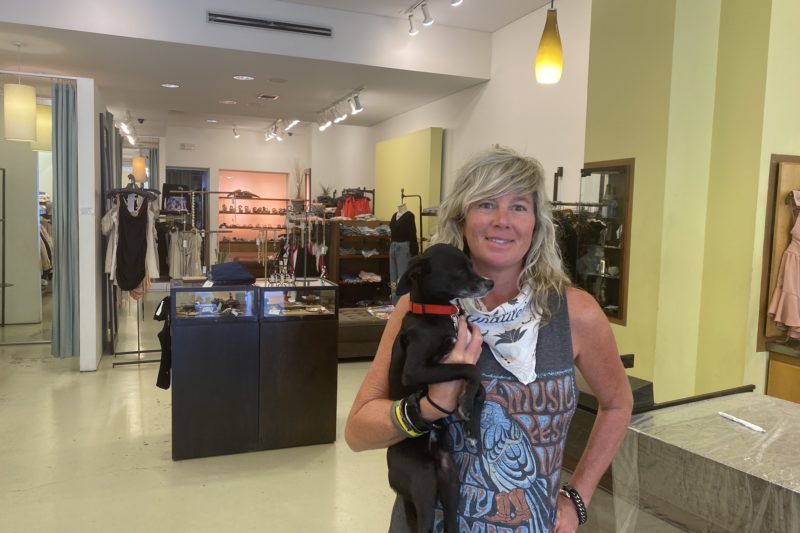Businesses on The Drag Struggle Since the Pandemic
By Elexa Sherry
Reporting Texas TV
AUSTIN, Texas — The Drag, which was once the heart of student life off campus, became a vacant, lifeless street.
When students returned to campus for in-person classes this fall, many were disappointed to find their beloved shops and restaurants closed. Since the start of the pandemic, over 1,500 businesses in the Austin area have either temporarily or permanently shut down.
In March of 2020, Kat Key closed her clothing boutique c.jane on Guadalupe Street, which opened in 2006. Upon opening back up, business was little to non-existent.
“We didn’t have any business for a few months, which was because we were non-essential, and then it was more by dropping off or by appointment only. So [there’s been] a drastic shift in business,” Key said.
Key said because students were not going out as much, she had to shift her inventory. She stocked her racks with jackets and sweats from loungewear brands like Aviator Nation. She said production has not been the same since before the pandemic started.
“I do see a shift towards back to normal, but production has been messed up. Shipping has definitely been affected and the supply is still a struggle,” Key said.

c.jane boutique owner Kat Key poses with her dog. Key began working at the boutique in 2006. (Photo: Elexa Sherry)
James Nelson, owner of the 57-year-old Wooten Barber Shop, also experienced difficulties at the start of the pandemic. He had to close the shop for 11 weeks.
“It’s not normal [now], but it’s improving, and we’re learning to live with this,” Nelson said.
He said if it wasn’t for the Paycheck Protection Program, enacted in June 2020, his shop would not have survived. The PPP is a Small Business Administration-backed loan that helps small businesses with fewer than 500 employees.
“Without that, I probably would’ve not been willing to dig into my retirement funds to keep my rent paid,” Nelson said.
UT Government associate professor Patrick McDonald said in comparison to larger corporations, smaller businesses are uniquely vulnerable.
“If their business model was based on foot traffic in Austin, they’re more vulnerable,” McDonald said.
“Cross that with big Amazon or Walmart or Home Depot…if they get shut down because of a COVID outbreak, they can make it up in mail order business and in other places. [But] Small businesses, they can’t.”
Both Nelson and Key said the future of their shops looks brighter. Nelson said the barbershop has had a lot more students back in the barber chair. Key said she is grateful for where her store is today.
“I value my customers, my employees more than I ever have, and I couldn’t be more excited to see a backpack and a person on campus,” Key said.